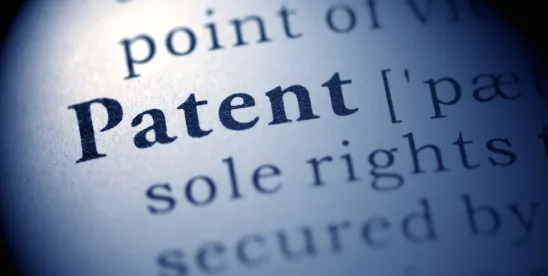The US Court of Appeals for the Federal Circuit dismissed a patent challenger’s appeal in an inter partes review (IPR) because the challenger could not meet the injury-in-fact requirement for Article III standing. Platinum Optics Tech. Inc. v. Viavi Solutions Inc., Case No. 23-1227 (Fed. Cir. Aug. 16, 2024) (Moore, Taranto, JJ.; Checchi, Dist. J, sitting by designation).
Viavi Solutions owns a patent directed to optical filters that include layers of hydrogenated silicon and to sensor systems comprising such optical filters. Platinum Optics Technology (PTOT) petitioned for IPR. The Patent Trial & Appeal Board found that PTOT had failed to establish that the challenged claims were unpatentable. PTOT appealed.
The Federal Circuit dismissed the appeal, finding that PTOT did not have Article III standing. The Court explained that while Article III standing is not required to appear before an administrative agency (such as the US Patent & Trademark Office), such standing is required once a party seeks judicial review in an Article III federal court. PTOT argued it had standing because of potential infringement liability due to its continued distribution of a product previously accused of infringing the patent and its development of new models of the previously accused product. The Court rejected both arguments.
First, PTOT asserted that it suffered an injury in fact because there was a likelihood that Viavi would sue again. PTOT relied on a letter from Viavi stating that it did not believe PTOT could fulfill its supply agreements with noninfringing products. The Federal Circuit disagreed with PTOT’s assertion, concluding that mere speculation about the possibility of suit, without more, is insufficient to confer Article III standing. Moreover, the Court noted that Viavi’s letter was sent prior to the patent infringement suits, which were dismissed with prejudice. Thus, the Court found that PTOT had not established an injury in fact based on potential infringement liability due to its continued distribution of a previously accused product.
Second, PTOT asserted that it suffered an injury in fact based on its development of new models of the previously accused product. PTOT’s argument was supported by a declaration from a Deputy Director of Operation Management at PTOT and the same letter from Viavi threatening future suit. The Federal Circuit did not find the declaration testimony compelling. It explained that the declaration, which generally alleged that PTOT continued to develop new models of the previously accused product, did not identify any specific concrete plans for PTOT to develop a product that might implicate the patent. The declaration did not explain the particulars of these new models or how the models might relate to the patent. The Court found that the declaration was insufficient to establish that PTOT’s development activities created a substantial risk of infringement or were likely to cause Viavi to assert infringement. The Court noted that the letter from Viavi did not specifically address models in development or foreclose PTOT’s ability to develop a noninfringing product.
Thus, the Federal Circuit concluded that PTOT failed to establish an injury in fact sufficient to confer standing on appeal. The Court dismissed the appeal without reaching the merits of the Board’s decision.



 />i
/>i

